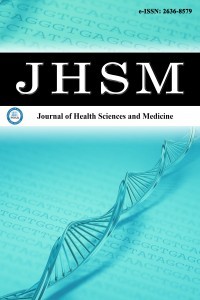1.
Morrison RS, Meier DE. Clinical practice. Palliative care. N Engl JMed 2004; 350: 2582-90.
2.
World Health Organization. Definition of Palliative Care 2020.Available from: https://www.who.int/news-room/fact-sheets/detail/palliative-care
3.
World Health Organization. Global Atlas of Palliative Care 2ndEdition. London: Worldwide Palliative Care Alliance 2020.
4.
Quill TE, Abernethy AP. Generalist plus specialist palliative care--creating a more sustainable model. N Engl J Med 2013; 368: 1173-5.
5.
Diakos CI, Charles KA, McMillan DC, Clarke SJ. Cancer-relatedinflammation and treatment effectiveness. Lancet Oncol 2014; 15:e493-503.
6.
Padoan A, Plebani M, Basso D. Inflammation and PancreaticCancer: Focus on Metabolism, Cytokines, and Immunity. Int JMol Sci 2019; 20.
7.
Crusz SM, Balkwill FR. Inflammation and cancer: advances andnew agents. Nat Rev Clin Oncol 2015; 12: 584-96.
8.
Jung KW, Won YJ, Hong S, Kong HJ, Lee ES. Prediction of CancerIncidence and Mortality in Korea, 2020. Cancer Res Treat 2020;52: 351-8.
9.
Chen JH, Zhai ET, Yuan YJ, et al. Systemic immune-inflammationindex for predicting prognosis of colorectal cancer. World JGastroenterol 2017; 23: 6261-72.
10.
Huang H, Liu Q, Zhu L, et al. Prognostic Value of PreoperativeSystemic Immune-Inflammation Index in Patients with CervicalCancer. Sci Rep 2019; 9: 3284.
11.
Li X, Gu L, Chen Y, et al. Systemic immune-inflammation indexis a promising non-invasive biomarker for predicting the survivalof urinary system cancers: a systematic review and meta-analysis.Annals of Medicine 2021; 53: 1827-38.
12.
Meneguin S, Matos TDS, Ferreira M. Perception of cancer patientsin palliative care about quality of life. Rev Bras Enferm 2018; 71:1998-2004.
13.
Smith TJ, Temin S, Alesi ER, et al. American Society of ClinicalOncology provisional clinical opinion: the integration of palliativecare into standard oncology care. J Clin Oncol 2012; 30: 880-7.
14.
Dulaney C, Wallace AS, Everett AS, Dover L, McDonald A, KroppL. Defining Health Across the Cancer Continuum. Cureus 2017;9: e1029.
15.
Irwin KE, Greer JA, Khatib J, Temel JS, Pirl WF. Early palliative careand metastatic non-small cell lung cancer: potential mechanismsof prolonged survival. Chron Respir Dis 2013; 10: 35-47.
16.
Temel JS, Greer JA, Muzikansky A, et al. Early palliative care forpatients with metastatic non-small-cell lung cancer. N Engl J Med2010; 363: 733-42.
17.
Luo H, He L, Zhang G, et al. Normal Reference Intervals ofNeutrophil-To-Lymphocyte Ratio, Platelet-To-LymphocyteRatio, Lymphocyte-To-Monocyte Ratio, and Systemic ImmuneInflammation Index in Healthy Adults: a Large Multi-CenterStudy from Western China. Clin Lab 2019; 65.
18.
Lee SH, Lee JG, Choi YJ, et al. Prognosis palliative care study,palliative prognostic index, palliative prognostic score andobjective prognostic score in advanced cancer: a prospectivecomparison. BMJ Support Palliat Care 2021.
19.
Stone P, Vickerstaff V, Kalpakidou A, et al. Prognostic tools orclinical predictions: Which are better in palliative care? PLoS One2021; 16: e0249763.
20.
Zhou J, Xu S, Cao Z, et al. Validation of the Palliative PrognosticIndex, Performance Status-Based Palliative Prognostic Index andChinese Prognostic Scale in a home palliative care setting forpatients with advanced cancer in China. BMC Palliat Care 2020;19: 167.
21.
Lolli C, Caffo O, Scarpi E, et al. Systemic Immune-InflammationIndex Predicts the Clinical Outcome in Patients with mCRPCTreated with Abiraterone. Front Pharmacol 2016; 7: 376.
22.
Ji Y, Wang H. Prognostic prediction of systemic immune-inflammation index for patients with gynecological and breastcancers: a meta-analysis. World J Surg Oncol 2020; 18: 197.
23.
He K, Si L, Pan X, et al. Preoperative Systemic Immune-Inflammation Index (SII) as a Superior Predictor of Long-TermSurvival Outcome in Patients With Stage I-II Gastric Cancer AfterRadical Surgery. Front Oncol 2022; 12: 829689.
24.
Feng JF, Chen S, Yang X. Systemic immune-inflammation index(SII) is a useful prognostic indicator for patients with squamouscell carcinoma of the esophagus. Medicine (Baltimore) 2017; 96:e5886.
25.
Murthy P, Zenati MS, Al Abbas AI, et al. Prognostic Value of theSystemic Immune-Inflammation Index (SII) After NeoadjuvantTherapy for Patients with Resected Pancreatic Cancer. Ann SurgOncol 2020; 27: 898-906.
26.
Yilmaz A, Mirili C, Bilici M, Tekin SB. A novel predictor inpatients with gastrointestinal stromal tumors: Systemic immune-inflammation index (SII). J buon 2019; 24: 2127-35.
27.
Huang Y, Chen Y, Zhu Y, et al. Postoperative Systemic Immune-Inflammation Index (SII): A Superior Prognostic Factor ofEndometrial Cancer. Front Surg 2021; 8: 704235.
28.
Yan Q, Ertao Z, Zhimei Z, et al. Systemic immune-inflammationindex (SII): A More Promising Inflammation-Based PrognosticMarker for Patients with synchronic colorectal peritonealcarcinomatosis. J Cancer 2020; 11: 5264-72.
29.
Zhao LY, Yang DD, Ma XK, et al. The Prognostic Value of aspartateaminotransferase to lymphocyte ratio and systemic immune-inflammation index for Overall Survival of HepatocellularCarcinoma Patients Treated with palliative Treatments. J Cancer2019; 10: 2299-311.
30.
Karn T, Pusztai L, Rody A, Holtrich U, Becker S. The Influenceof Host Factors on the Prognosis of Breast Cancer: Stroma andImmune Cell Components as Cancer Biomarkers. Curr CancerDrug Targets 2015; 15: 652-64.

